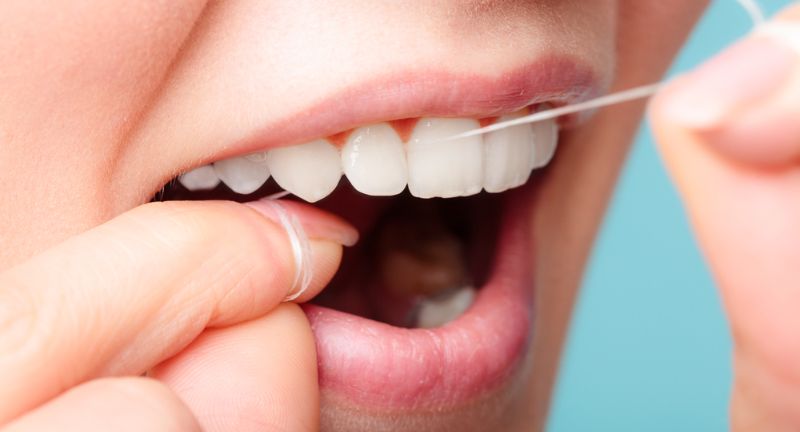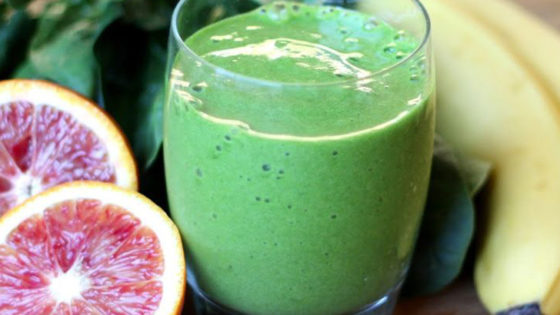HEALTH + FITNESS
Your Dentist Was Right: 20 Crucial Things to Know About Flossing
Published
1 week agoon

Shutterstock
Flossing is one of the most important yet often overlooked aspects of oral hygiene. While brushing cleans the surfaces of your teeth, flossing removes plaque and food particles from the tight spaces between them. Neglecting to floss can lead to bad breath, cavities, gum disease, and even more serious health issues. Many people either floss incorrectly or skip it altogether, not realizing its full benefits. This guide will cover everything you need to know about flossing to help you maintain a healthier smile and prevent long-term dental problems.
Flossing Removes Plaque and Food Debris

Shutterstock
Brushing your teeth only cleans about 60% of your tooth surfaces, leaving the areas between your teeth untouched. Flossing effectively removes plaque and food particles that get stuck in these hard-to-reach spaces, preventing decay. Without flossing, bacteria can accumulate between teeth, leading to cavities and gum disease. Regular flossing ensures your entire mouth stays clean, reducing the risk of dental problems.
It Helps Prevent Gum Disease

Shutterstock
Gum disease starts with plaque buildup along the gumline, causing inflammation and bleeding. When left untreated, this can progress to periodontitis, a severe form of gum disease that leads to tooth loss. Flossing removes plaque before it hardens into tartar, which can only be removed by a dentist. By flossing daily, you protect your gums from infections and keep them healthy.
Flossing Reduces Bad Breath

Shutterstock
Bad breath often results from food particles and bacteria trapped between your teeth. When these particles break down, they release unpleasant odors, contributing to halitosis. Flossing helps eliminate these hidden food remnants, keeping your breath fresh. Incorporating flossing into your daily routine ensures a cleaner mouth and fresher breath throughout the day.
It Lowers Your Risk of Cavities

Shutterstock
Cavities often form in tight spaces between teeth where toothbrush bristles can’t reach. Bacteria feed on leftover food and produce acids that weaken enamel, leading to tooth decay. Flossing removes this food debris and bacteria before they cause damage. Consistent flossing helps maintain strong, healthy teeth by preventing cavity formation.
There Are Different Types of Floss

Shutterstock
Floss comes in different types, including waxed, unwaxed, dental tape, and flavored options. Waxed floss is great for people with tightly spaced teeth, while dental tape works better for those with more space. Some flosses are infused with fluoride or antibacterial agents to enhance protection. Choosing the right floss ensures you get the best cleaning experience for your specific dental needs.
Flossing Once a Day is Enough

Shutterstock
Unlike brushing, which should be done twice a day, flossing only needs to be done once daily. Flossing at night before bed is ideal because it removes food particles and plaque buildup from the day. Over-flossing can irritate gums and cause damage if done too aggressively. A single thorough flossing session each day is enough to keep your teeth and gums healthy.
Proper Technique Matters

Shutterstock
Flossing isn’t just about sliding the thread between teeth and pulling it out. The best method involves wrapping the floss around each tooth in a C-shape and gently moving it up and down. Avoid snapping the floss against your gums, as this can cause irritation and bleeding. Practicing proper flossing technique ensures maximum plaque removal and gum protection.
Floss Before You Brush

Shutterstock
Flossing before brushing helps dislodge food particles and plaque, allowing the fluoride in your toothpaste to work more effectively. This method maximizes cleaning by ensuring that your toothbrush reaches clean tooth surfaces. Some people prefer to brush first, but flossing beforehand is more beneficial. This small habit change can make a big difference in your oral hygiene.
Bleeding Gums? Don’t Stop Flossing!

Shutterstock
If your gums bleed when you floss, it’s usually a sign of inflammation caused by plaque buildup. Many people stop flossing when they see blood, but this only allows bacteria to thrive. Continued flossing helps heal gums by removing irritants and reducing inflammation. If bleeding persists for more than two weeks, consult a dentist to rule out any serious gum disease.
Flossing Can Reduce Your Risk of Heart Disease

Shutterstock
Studies suggest a connection between gum disease and heart health. Bacteria from inflamed gums can enter the bloodstream and contribute to cardiovascular problems. Regular flossing helps reduce this bacterial load, lowering inflammation that could affect the heart. Keeping your gums healthy is an important step in maintaining overall well-being.
Kids Should Start Flossing Early

Shutterstock
Children should begin flossing as soon as they have two teeth that touch. Parents should assist young children in flossing until they develop the dexterity to do it properly on their own. Teaching good flossing habits early on helps prevent cavities and gum disease as they grow. Making flossing a part of their routine ensures long-term dental health.
Flossing Can Help Prevent Diabetes Complications

Shutterstock
People with diabetes are more prone to gum disease due to increased blood sugar levels. Infections in the gums can make it harder to manage diabetes by increasing inflammation and blood sugar fluctuations. Flossing helps control oral bacteria, reducing the risk of gum disease and its effects on overall health. Keeping your gums healthy can contribute to better diabetes management.
Water Flossers Can Be an Alternative

Shutterstock
For people who struggle with traditional flossing, water flossers offer a convenient alternative. These devices use a stream of water to remove plaque and debris between teeth and along the gumline. Water flossers are especially helpful for those with braces, sensitive gums, or limited hand mobility. While they are effective, they work best when used in combination with regular flossing.
Braces Wearers Need Special Flossing Tools

Shutterstock
People with braces need to take extra care when flossing to avoid plaque buildup around brackets and wires. Floss threaders or orthodontic floss are designed to navigate these obstacles, making flossing easier. Neglecting to floss with braces can lead to cavities, staining, and gum disease. Using the right flossing tools ensures better oral hygiene throughout orthodontic treatment.
Flossing Can Protect Your Enamel

Shutterstock
Enamel is the outer layer of your teeth that protects against decay and damage. When plaque builds up, it produces acids that wear down enamel over time. Flossing removes plaque before it can cause harm, keeping enamel strong. Protecting enamel is essential for preventing cavities and maintaining healthy teeth.
You Can Floss Too Hard

Shutterstock
While flossing is crucial for oral hygiene, being too aggressive can cause gum damage. Snapping floss or pressing too hard can lead to gum recession, sensitivity, and even bleeding. A gentle, controlled motion ensures that plaque is removed without harming the delicate gum tissue. Proper flossing technique is key to keeping both teeth and gums healthy.
Not Flossing Can Lead to Tooth Loss

Shutterstock
Neglecting to floss allows plaque to build up, which can lead to gum disease and eventually tooth loss. As bacteria spread below the gumline, they attack the bone that holds teeth in place. Over time, this can cause teeth to become loose and fall out. Flossing is an easy way to prevent severe dental issues and keep your smile intact.
Flavored Floss Can Make It More Enjoyable

Shutterstock
If you find flossing dull or unpleasant, flavored floss might make it a more enjoyable habit. Flavors like mint, cinnamon, and even coconut can make the process more refreshing. Using a floss you like can encourage you to be more consistent with your oral hygiene routine. A little flavor can turn flossing from a chore into a pleasant experience.
Disposable Floss Picks Are Convenient but Not as Effective

Shutterstock
Floss picks are a quick and easy way to floss, especially on the go. However, they don’t allow for the same level of thorough cleaning as traditional floss. They can help remove debris, but they may not wrap around each tooth as effectively as regular floss does. While they’re better than not flossing at all, they should be supplemented with traditional flossing for the best results.
Flossing is a Lifelong Habit

Shutterstock
Flossing is not just a temporary practice—it’s essential for lifelong oral health. Even if your teeth feel clean, bacteria can still build up between them. Making flossing a daily habit ensures a healthy mouth, strong teeth, and fresh breath. A few minutes of flossing each day can save you from expensive and painful dental procedures in the future.
Conclusion

Shutterstock
Flossing may seem like a small task, but it plays a crucial role in maintaining oral and overall health. By making it a daily habit, you can prevent cavities, gum disease, and even more serious conditions linked to poor dental hygiene. With the right technique and tools, flossing can be quick, effective, and easy to incorporate into your routine. Your teeth and gums will thank you for the extra care, and your dentist will likely notice the difference at your next check-up. Start today, and enjoy the long-term benefits of a healthier, brighter smile.
Related Topics:

More From Lifestylogy
-


Is Blue Light Damaging Your Skin?
-


Drinking Coffee This Way May Extend Your Life
-


Feeling Stressed and Tired? These Essential Oils Will Help
-


Oprah Winfrey Reveals Weight Loss Total to Date
-


This Food is the Number One Culprit for Food Poisoning
-


Jennifer Aniston Urges Fans to Wear a Face Mask
-


Researchers in Finland Finally Find a Hangover Cure That Works!
-


How to Rid Your Body of Unsightly Cellulite with 6…
-


The Ultimate Summer Smoothie